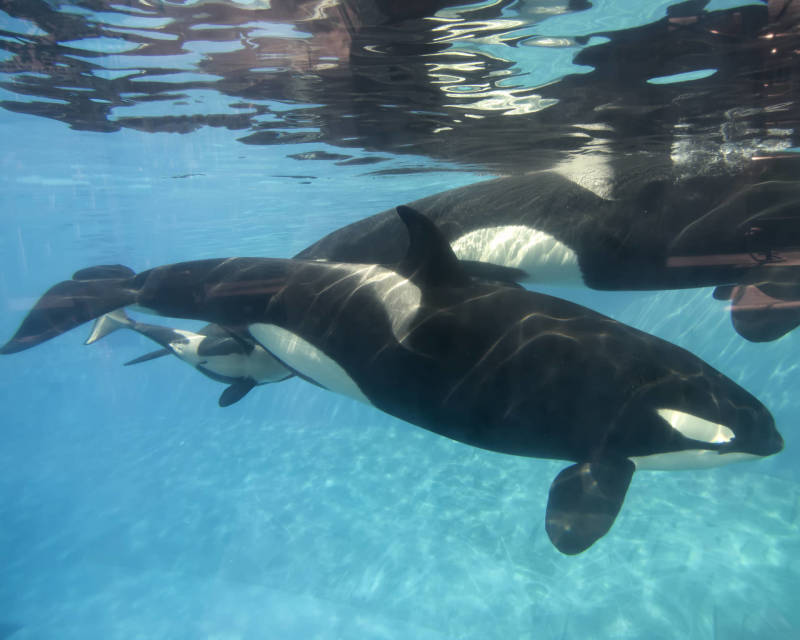Orcas have long been a centerpiece of the SeaWorld parks. Shows at the Shamu stadium in San Diego became the main draw in the 1970s and helped make SeaWorld a top tourist attraction. San Diego was the original home of Shamu, SeaWorld's first orca.
SeaWorld officials said they were also forming a partnership with the Humane Society to help educate guests on animal welfare and conservation issues through interpretive programs at the parks and by expanded advocacy for wild whales, seals and other marine creatures.
Humane Society CEO Wayne Pacelle said his organization and SeaWorld had been longtime foes, but he said it was time to turn criticism into collaboration.
"We don't come to this discussion with any naivete about the operations at SeaWorld," Pacelle said.
Criticism over keeping killer whales in captivity increased in 2010 after an orca named Tilikum grabbed trainer Dawn Brancheau after a "Dine with Shamu" show and pulled her into the pool, killing her. The death was highlighted in "Blackfish." Tilikum, who was also involved in the deaths of two others, is now very sick. He has been at SeaWorld Orlando for 23 years.
Last month, SeaWorld acknowledged sending workers to infiltrate the animal rights group People for the Ethical Treatment of Animals. At the time, Manby said the employees had been sent to PETA to protect the safety of its employees and customers, but he vowed to end the practice.
PETA, which has been especially critical of SeaWorld, said the company needs to do more for the animals.
"SeaWorld must open its tanks to the oceans to allow the orcas it now holds captive to have some semblance of a life outside these prison tanks," PETA spokeswoman Colleen O'Brien said in a statement.
By August 2014, SeaWorld said it would build new, larger environments for its marine mammals and fund additional research and conservation efforts. The project has yet to get off the ground.
Last October, the California Coastal Commission approved a $100 million expansion of SeaWorld's tanks for its orcas in San Diego but also banned breeding of the captive animals. SeaWorld said it would end the orca shows in San Diego by 2017, and the company also filed a lawsuit saying the California commission had overreached when it banned breeding at that park.
SeaWorld hasn't been alone in dealing with the public outrage that followed "Blackfish" and the 2009 documentary "The Cove," which showed the killing of dolphins in Japan. The National Aquarium in Baltimore announced in 2014 that it would explore retiring its eight dolphins to an oceanside sanctuary, and elected officials in some California cities passed resolutions stating that whales and dolphins have the right to freedom from captivity.
Rep. Adam Schiff, a Democrat from Los Angeles County who introduced the Orca Responsibility and Care Advancement Act in 2015, applauded SeaWorld's announcement Thursday.
"These changes are something that advocates have been urging for years, and I think SeaWorld will find that visitors will reward their actions with a renewed interest in the parks," Schiff said in a statement Thursday.
Associated Press writer Jennifer Kay in Miami contributed this report.
